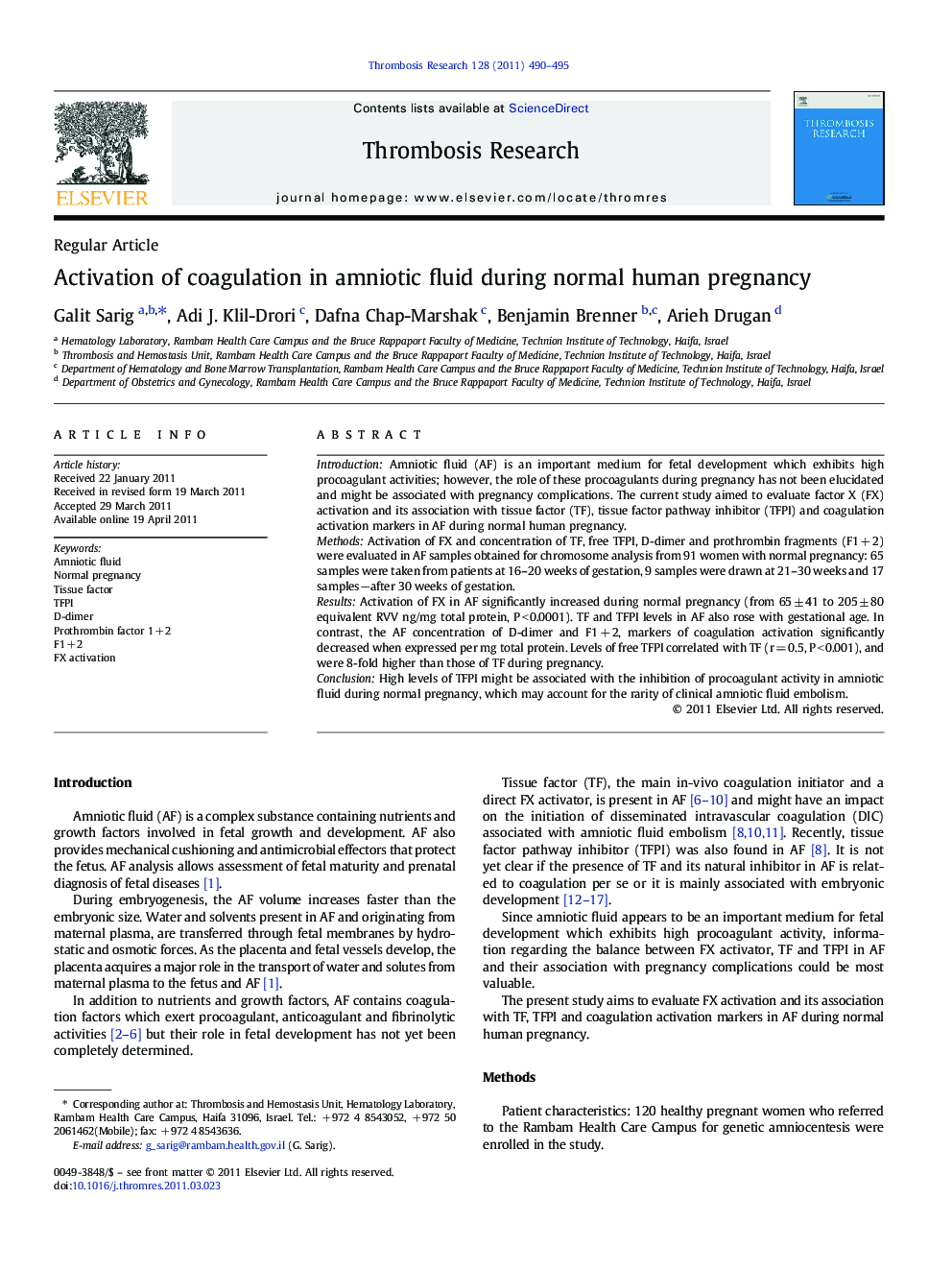| Article ID | Journal | Published Year | Pages | File Type |
|---|---|---|---|---|
| 3029059 | Thrombosis Research | 2011 | 6 Pages |
IntroductionAmniotic fluid (AF) is an important medium for fetal development which exhibits high procoagulant activities; however, the role of these procoagulants during pregnancy has not been elucidated and might be associated with pregnancy complications. The current study aimed to evaluate factor X (FX) activation and its association with tissue factor (TF), tissue factor pathway inhibitor (TFPI) and coagulation activation markers in AF during normal human pregnancy.MethodsActivation of FX and concentration of TF, free TFPI, D-dimer and prothrombin fragments (F1 + 2) were evaluated in AF samples obtained for chromosome analysis from 91 women with normal pregnancy: 65 samples were taken from patients at 16–20 weeks of gestation, 9 samples were drawn at 21–30 weeks and 17 samples−after 30 weeks of gestation.ResultsActivation of FX in AF significantly increased during normal pregnancy (from 65 ± 41 to 205 ± 80 equivalent RVV ng/mg total protein, P < 0.0001). TF and TFPI levels in AF also rose with gestational age. In contrast, the AF concentration of D-dimer and F1 + 2, markers of coagulation activation significantly decreased when expressed per mg total protein. Levels of free TFPI correlated with TF (r = 0.5, P < 0.001), and were 8-fold higher than those of TF during pregnancy.ConclusionHigh levels of TFPI might be associated with the inhibition of procoagulant activity in amniotic fluid during normal pregnancy, which may account for the rarity of clinical amniotic fluid embolism.
